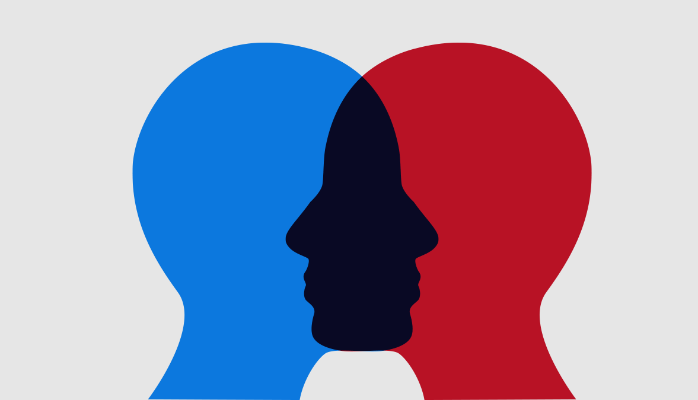You have no items in your cart. Want to get some nice things?
Go shopping As Bernie Sanders bowed out of his bid to become the next president of the US, he vowed that ‘the political revolution will continue.’ But what is the revolution that Sanders and his 12 million supporters are calling for?
As Bernie Sanders bowed out of his bid to become the next president of the US, he vowed that ‘the political revolution will continue.’ But what is the revolution that Sanders and his 12 million supporters are calling for?
‘Real change,’ says Sanders in the Washington Post. ‘An economic and political system that works for all of us.’ Opponents have branded him a socialist, but what Sanders is actually calling for is an empathy revolution: a revolution in our capacity to walk in another’s shoes for a mile. This would require us to sympathize as much with the black mother in Flint trying to provide safe drinking water to her child as with the Syrian teenager stranded on a boat in the Mediterranean. Sanders’s revolution recognizes that change begins with our ability to understand and share the feelings of others.
Philosopher Roman Krznaric argues that empathy has historically been critical in the struggle for social and political transformation. The success of the campaign to abolish slavery in 18th-century Britain depended on campaigners creating empathy through public talks, testimonies, and posters. The ability to imagine ‘what it might be like to be a slave’ preceded outrage at the institution of slavery. Outrage fuelled protests, petitions and the first free trade boycott of slave-produced sugar.
Donald Trump’s quest to build a wall to stem Mexican migration or ban Muslims from entering the US reflects most fundamentally his failure to empathize. His lack of empathy may be one of his biggest problems. But how do we create empathy? It is relatively easy to sympathize with others we identify with on the basis of ethnicity, race, religion or class, but what about people who are very different?
Stories are one powerful tool for fostering empathy. The artist’s or poet’s mission is a democratizing one, as Walt Whitman said. It is a mission to provide imagination, sympathy and voice to the despised, to participate through sympathy in the ‘degradation of the degraded’.
When the former Canadian Prime Minister Stephen Harper instituted policies to cut social spending, Booker-prize winning novelist Yann Martel sent him books. Every two weeks for four years, Martel sent the Prime Minister a new book to help him discover something of the world around him. From Nigerian author Chinua Achebe’s Things Fall Apart to Ernest Hemingway’s The Old Man and the Sea, Harper received over a hundred books along with a letter.
“Books are a way of making you understand the other, the geographic other, the historic other, the sexual other, the racial other,” said Martel. Research supports his claim that reading literary fiction can increase empathy. Psychologists Emanuele Caetano and David Comer Kidd at the New School for Social Research in New York have shown that reading literary fiction enhances the ability to detect and understand other people’s emotions. Works of the imagination may be effective in fostering empathy precisely because they are not governed by norms of rational argument that lack the sense of immediacy and urgency that a story provides.
Moved by the plight of Oklahoma migrants during the Great Depression, in 1939 John Steinbeck published his
Pulitzer-prize winning masterpiece The Grapes of Wrath. Steinbeck tells the story of the Joads, who lose their tenant farm in Oklahoma and are forced to take to the road in search of employment in California. The novel depicts the poignant courage and humor of the Joads, and the countless other landless migrants they encounter along the way, people who share the indignity of the Joads’ poverty, and their hopes of a new social order. Through our exposure to the characters that walk through its pages, our intimacy with their longings, fears and the thoughts they hold most sacred, we come to understand our shared humanity and suffering.
Eleanor Roosevelt called The Grapes of Wrath ‘an unforgettable reading experience.’ She praised it for its coarseness and beauty, the ‘horrors of the picture, so well- drawn.’ Reading the novel moved her to visit the migrants’ camps in California.
At the time of the Great Depression, the 99% suffered crushing poverty, loss of property, and displacement from their homes.
Eminent economists like Paul Krugman have said that our situation in the wake of the 2008 financial crisis is a ‘Third Depression’. Now, as in the 1930s, the collapse of the financial markets and restructuring of the labor force have brought profits to some and hardship for many. Steinbeck’s novel is as relevant today as it was when he wrote it.
Even though Sanders did not win the Democratic nomination, books like The Grapes of Wrath can keep the empathy revolution alive.
And perhaps someone should send a copy to Trump.
About Manini Sheker
I hold a MPhil in International Development from the University of Oxford and a Masters of Social Work from the University of Toronto. I've contributed articles to the Guardian, openDemocracy and Seminar magazine among other publications. In 2011 I was a finalist in the Guardian's International Development Journalism competition and in 2013 awarded the Ngo Human Welfare Prize by the University of Oxford for an essay on religion, freedom and economic development.




